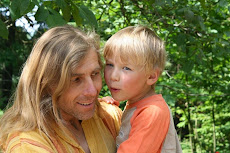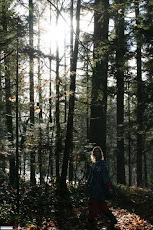 After a full week now of G8 protests, summits and meetings, I've been alternately inspired and frustrated by the process we activists are using. What (if anything) is the best way to effect change, influence leaders, change public understanding and priorities, and come up with innovative sustainable solutions?
After a full week now of G8 protests, summits and meetings, I've been alternately inspired and frustrated by the process we activists are using. What (if anything) is the best way to effect change, influence leaders, change public understanding and priorities, and come up with innovative sustainable solutions?The Gender Justice Summit was powerful, extremely well run, a great diversity of speakers, high energy - so many good things with high education/background value. BUT, for a whole weekend we listened to panel after panel sharing their creative ideas and brave experience, but not until the final 30 minutes did we get to sit in smaller groups and talk about solutions. In that time we couldn't make much more than a laundry list, and who knows where it goes now.
 The rallies are powerful, spirit-raising, lotsa people look up from their Starbucks table and snap pictures on their cellphones. They're brought alive by creative clowns, clever signs, drumming on oil drums, people who douse their bodies in fake oil, dancing on top of bus shelters, and once again powerful speakers. BUT, the media passes us off as fringe radicals who are blocking traffic, and certainly no deep messages can be conveyed in that format, just a general outrage and lack of support for government policies and status quo.
The rallies are powerful, spirit-raising, lotsa people look up from their Starbucks table and snap pictures on their cellphones. They're brought alive by creative clowns, clever signs, drumming on oil drums, people who douse their bodies in fake oil, dancing on top of bus shelters, and once again powerful speakers. BUT, the media passes us off as fringe radicals who are blocking traffic, and certainly no deep messages can be conveyed in that format, just a general outrage and lack of support for government policies and status quo.Last night's Peoples Summit for Climate Justice was the first true opportunity to share and develop ideas and plans. Rather than preach to the 150 people crowded into the hall at 7pm, the organizers simply put up a leading question - "How are justice and climate change related in your community" - and let us form into groups and start talking. Halfway through each group reported back, key themes were picked out, then groups formed around each theme to discuss/plan in greater depth.
I chose to work on the idea of a national referendum on climate change. In a short time we looked at the goals, various existing models of how to run it, logistical considerations, the first steps needed to make it happen, and who was willing to commit to moving it to the next stage. Other groups made similar progress in areas of energy reduction, tar sands, political partnerships, government accountability, etc. Something may actually happen because of the 3 hours that this motivated, committed group spent together.
Last night's Assembly was based on, and built upon, the innovative work done in April at Cochabamba - the gathering organized by Bolivia in the wake of the failed Copenhagen political fiasco. At Cochabamba, 30,000 people from civil society and indigenous groups from around the world gathered in this collaborative format to work together and produce inspiring, original and do-able proposals and statements. All being ignored, of course, by the G8 leaders, but things that citizen groups like ours can follow up on. The basic belief is that governments are failing us, so we have to work together to create the world we want our children to inherit.
Put all together, this week in Toronto has many of the elements needed to make a difference. Panel presentations to educate. Rallies to inspire, bring together, and gain a spotlight. Discussion groups to generate new ideas and advance plans. It's still too early for most of our government leaders to listen to the people they represent, but the stronger we become, the more power we will have to create change either with or in spite of them.






thanks for your reports.
ReplyDeletei found nothing on the people's summit on mainstream media but did watch some online thru rabble.ca